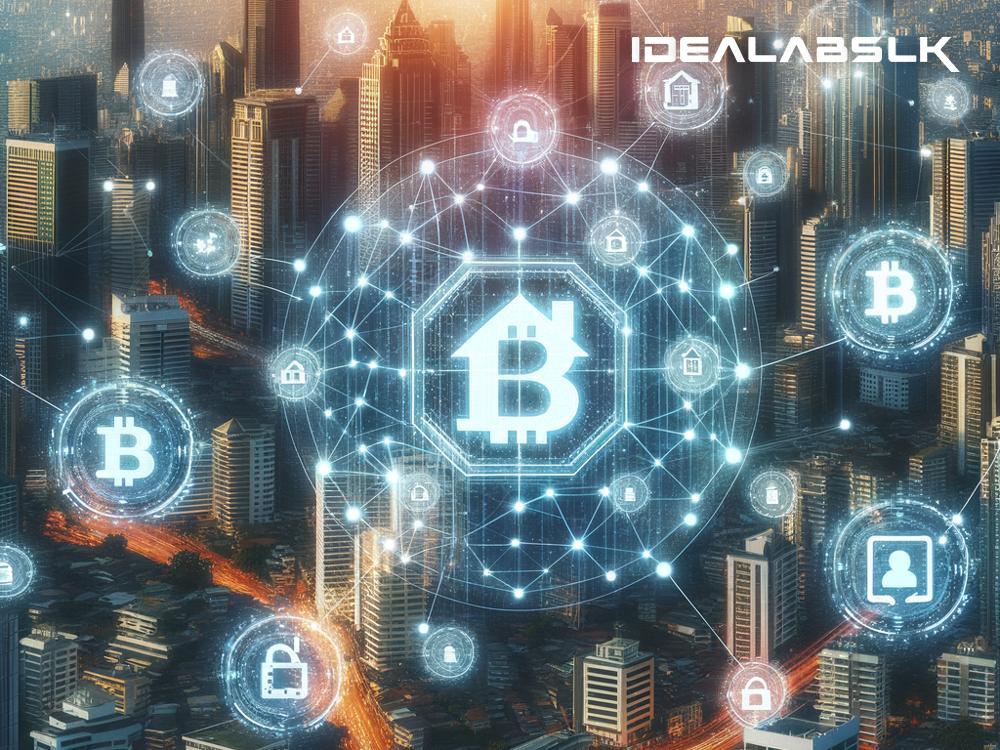Blockchain Technology: Transforming Real Estate Investment Through Enhanced Data Integrity
In an era where technology touches virtually every aspect of our lives, the real estate sector is not left behind. The introduction of blockchain technology into real estate investment has begun to revolutionize this age-old industry by fostering transparency, security, and trust among investors. But before diving deep into the nexus of blockchain and real estate, let's break down these concepts into simpler terms.
Understanding Blockchain
Imagine a digital ledger that is accessible to numerous people across the globe simultaneously. This ledger meticulously records every transaction that occurs within it, like a digital diary that automatically writes itself. The fascinating part? Once a transaction is recorded, it's extremely difficult to alter. This ledger is neither controlled by a single entity nor stored in a single location, making it remarkably secure and resistant to fraudulent activities. That's the essence of blockchain technology.
The Traditional Real Estate Investment Landscape
Traditionally, investing in real estate has been seen as a solid choice. However, it comes with its fair share of challenges, such as lack of transparency, fraud, cumbersome paperwork, and slow processes. Verifying the authenticity of property data, such as ownership history, current value, and the legitimacy of documents, can be time-consuming and fraught with potential inaccuracies. This scenario often leads to decreased trust among investors and hinders the efficiency of transactions.
Enter Blockchain: A New Dawn for Real Estate Investment
Blockchain technology is turning the tide by addressing these long-standing issues head-on. Here’s how it's bringing about a transformation:
-
Enhanced Data Integrity and Security: By storing property data across a decentralised network, blockchain ensures that the information is accurate, tamper-proof, and secure. Each transaction, once recorded, becomes part of an unchangeable chain of data. This impeccable level of data integrity significantly reduces the risk of fraud, making investments safer.
-
Increased Transparency: Blockchain operates on a principle of openness. Each transaction and its details are visible to all participants, ensuring that there are no hidden modifications or discrepancies. This transparency builds trust among investors, as they can verify the data independently without relying solely on intermediaries.
-
Streamlined Transactions: Remember the notoriously slow and bureaucratic traditional processes? Blockchain simplifies these through smart contracts — self-executing contracts with the terms of the agreement directly written into code. This automation not only speeds up transactions but also reduces the need for third-party verification, lowering transaction costs and enhancing efficiency.
-
Democratization of Real Estate Investing: Blockchain technology makes it easier for small investors to enter the market through fractional ownership. By tokenizing real property into smaller, tradable units, investors can now own portions of property and enjoy returns on investment previously accessible only to those with substantial capital.
-
Global Reach: With blockchain, geographical boundaries blur. An investor in Asia can easily invest in property located in Europe or America without the logistical nightmare traditionally associated with such cross-border transactions. This global accessibility widens the investment pool, thus potentially increasing the liquidity and value of real estate assets.
Overcoming Challenges and Looking Forward
Despite its promising prospects, the integration of blockchain in real estate is not without challenges. Regulatory hurdles, technological adoption, and the need for widespread education among stakeholders are significant barriers. However, as technology evolves and awareness grows, these challenges are gradually being addressed.
The future of real estate investment, underpinned by blockchain, shines bright. Improved data integrity not only enhances the security and transparency of transactions but also redefines the relationship between property owners, investors, and intermediaries. As we move forward, the potential of blockchain to reshape the real estate landscape remains vast and largely untapped.
In essence, blockchain technology is not just transforming real estate investment; it's setting a new standard for how transactions should be conducted — with integrity, efficiency, and inclusivity. For investors, navigating this new landscape with an understanding of blockchain's capabilities and implications is key to unlocking the vast opportunities that lie ahead in the digital age of real estate.

